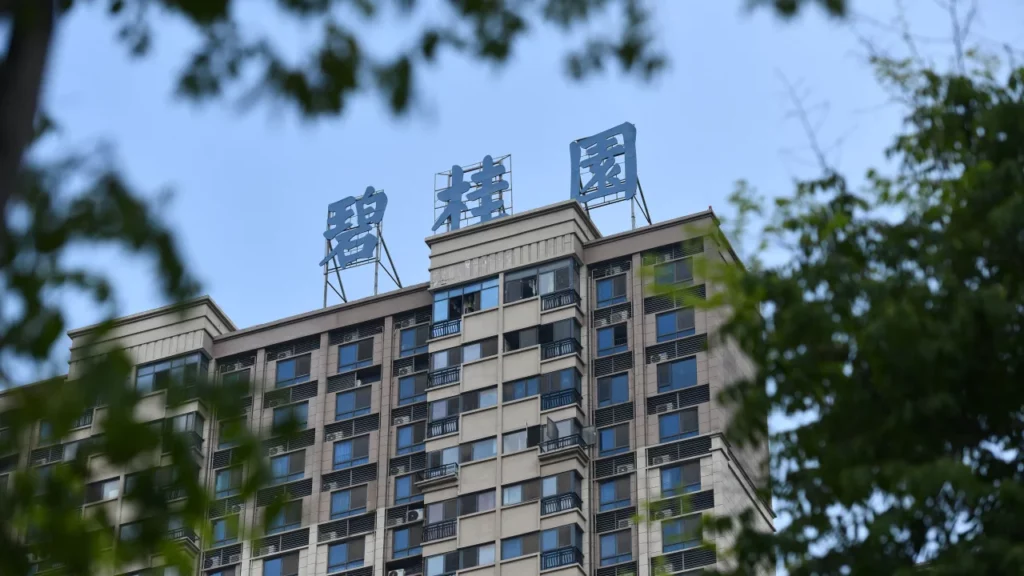Country Garden, China’s major homebuilder, has successfully avoided default, at least for the time being. However, it is worth monitoring the company’s financial situation and challenges it may encounter in the future.
Chinese property giant Country Garden has narrowly avoided defaulting on its debt twice in a short span, but its challenges are far from over. As China’s largest developer in terms of home sales, it’s causing concern among global investors due to upcoming payment deadlines on billions of dollars it has borrowed.
Moody’s estimates that the company has around 27 billion yuan ($3.7 billion) in bonds due to bondholders or subject to early payment demands through the end of 2024. Although one bond’s repayment deadline has been extended, Country Garden is still grappling with nearly $200 billion in total liabilities and is under mounting pressure to meet its financial obligations.
This task is made even more challenging by a slowdown in home demand in China, which has severely impacted the company’s cash flow and eroded its profitability. The situation presents significant uncertainties for Country Garden and its future prospects.
What is Country Garden?
Country Garden has established itself as one of China’s largest real estate developers with a primary focus on residential property development. The company is listed on the Hong Kong stock exchange and is headquartered in Foshan, Guangdong.
Country Garden boasts an extensive track record, having undertaken the development of approximately 3,000 projects across China. These projects have provided housing for a significant population, catering to the housing needs of over 5 million people. Notably, the company has played a pivotal role in the transformation of more than 1,400 rural towns into urban centers.
In addition to its residential endeavors, Country Garden also engages in the development of commercial spaces, including hotels, parking facilities, and retail stores. Furthermore, the company has ventured into diverse sectors like robotics and agricultural services, expanding its business interests.
With a substantial workforce, Country Garden contributes significantly to employment in China, with approximately 300,000 employees, as reported in its most recent annual report.
Country Garden holds a prominent position among the Global 500 companies, signifying its status as one of the world’s largest businesses in terms of revenue. In the previous year, the company reported substantial sales, with total revenue reaching nearly 430.4 billion yuan, which is approximately $59 billion.
However, despite its impressive revenue figures, the company’s net profit was comparatively modest, amounting to just 2.6 billion yuan, equivalent to approximately $357 million. This suggests that while Country Garden generates significant revenue, it faces challenges in retaining a substantial portion of those earnings as profit, possibly due to various operational costs and financial obligations.
Country Garden’s financial performance took a notable downturn compared to the previous year. In 2021, the company reported revenue of approximately 523 billion yuan, which is roughly $71.6 billion, along with a substantial net profit of about 41 billion yuan, equivalent to approximately $5.6 billion.
These figures highlight a significant decline in both revenue and profitability for Country Garden in the subsequent year.
The challenges faced by Country Garden are reminiscent of those encountered by Evergrande, another prominent Chinese developer. Evergrande experienced financial difficulties and defaulted in 2021. It subsequently filed for bankruptcy in the United States the previous month after incurring substantial losses of $81 billion over the past two years. These developments underscore the broader issues within China’s property sector, which have implications for the country’s economic growth efforts.
How did it get here?
Confidence in China’s real estate sector has been wavering since the collapse of Evergrande, and Country Garden further heightened concerns when its liquidity crisis became public knowledge last month.
Reports emerged that Country Garden had missed interest payments on two US dollar bonds, drawing attention to its overall debt troubles. The possibility of a default by Country Garden has kept investors on edge, and the company has openly acknowledged the potential for such an event.
A default by Country Garden could have far-reaching repercussions throughout the world’s second-largest economy, as the real estate sector contributes an estimated 25% to 30% of China’s GDP.
This situation poses one of the most significant challenges for Beijing’s leadership this year, as they strive to counteract a broader economic slowdown that has negatively impacted consumer confidence, exports, and retail spending, in addition to the real estate sector. Addressing the issues in the real estate market is a pivotal part of their efforts to stabilize the economy.

Country Garden has faced significant financial challenges recently, including posting a record loss of 51.5 billion yuan, equivalent to $7 billion, for the first half of the year. The company openly acknowledged that it had missed certain interest payments in August, contributing to its financial woes.
However, there has been a recent development reported in state media. It was mentioned that Country Garden managed to make late payments on the two US dollar bonds just before the expiration of a 30-day grace period, thus averting an immediate debt default.
Despite this temporary reprieve, Country Garden’s stock performance in Hong Kong has suffered considerably, with shares plunging by 55% since the beginning of the year. These financial difficulties led to the removal of Country Garden as a constituent of the Hong Kong Hang Seng Index last month, reflecting the challenging circumstances the company currently faces.
In an effort to address the ongoing crisis, Country Garden has taken several measures, including the establishment of a special task force and seeking support from its affluent owners.
The company revealed that since its listing in 2007, Chairwoman Yang Huiyan and her family have injected approximately 38.6 billion Hong Kong dollars, equivalent to $4.9 billion, into the company. This financial infusion has taken the form of new loans and purchases of shares and bonds, as disclosed in an August filing. Yang Huiyan is one of China’s wealthiest women; however, her personal fortune has experienced a significant decline in recent times due to the challenges faced by the company.
Chairwoman Yang Huiyan acknowledged the extraordinarily challenging conditions that China’s property sector has faced, describing it as an “unprecedentedly difficult business environment” in the previous year. She pointed to frequent occurrences of credit crises among property developers, sluggish property sales, and a lack of confidence among businesses.
Unfortunately, the difficulties persist into the current year. Country Garden reported a decline in both property sales and investment during the first six months of 2023, highlighting the ongoing challenges and uncertainties in the real estate market. These struggles continue to impact not only Country Garden but also the broader property sector in China.
What now?
So far, Country Garden has managed to avoid the most severe consequences. According to state media, the company has settled the overdue interest of $22.5 million on its two US dollar bonds. Additionally, it has reportedly received approval from local creditors this week to postpone payments on a maturing yuan-denominated bond. This extension grants them extra time to repay the outstanding principal of $540 million, which is now due by 2026.
However, it’s important to note that they are still obligated to adhere to the originally scheduled interest payments on the bond. Country Garden did not respond to CNN’s requests for comments on this matter.
Nevertheless, the company faces numerous upcoming deadlines, including around 13 billion yuan ($1.8 billion) in onshore bonds and roughly 14 billion yuan ($1.9 billion) in offshore bonds that are either due to bondholders or susceptible to early repayment requests through the end of the next year. This information is based on an estimate provided by Moody’s to CNN.
The credit rating agency has recently reduced Country Garden’s rating to “Ca,” indicating that the company’s financial obligations are likely in a state of default or very close to it.
Furthermore, the outlook for the company’s primary business is becoming increasingly bleak. Recently, Fitch Ratings revised its projection for new home sales in China, predicting a significant decline of 10% to 15% this year, which is a more severe drop compared to their earlier estimate of 0% to 5%. Fitch attributed this change to the resurgence of pressure on home prices.
Despite efforts by Chinese policymakers to support the real estate industry, Country Garden’s crisis could potentially create a harmful cycle by further dampening homebuyers’ confidence, as noted by Fitch.











